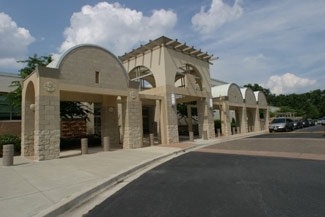NEW YORK, Jan. 30 (JTA) — A recent gift of $15 million to a community day school in Rockville, Md., has raised the antennae of Jewish professionals not just because of its size but because of its goals. Whereas previous gifts to Jewish day schools often were directed toward the construction of new buildings, campuses or even new schools, this latest gift to the Charles E. Smith Jewish Day School, among the country’s largest community day schools, is notable because it is intended to cover what professionals call operational costs, or capacity building, Jewish educators are saying. The gift, in other words, is not an endowment or part of a capital campaign. Rather it is meant to immediately affect the lives of students. It is among the largest-ever gifts to an individual Jewish day school. “It sets a new bar for investment in day schools and for reasons to invest,” said Rabbi Joshua Elkin, executive director of the Project for Excellence in Jewish Education. “These donors are very, very clear that they believe in the school as it is. What they’re saying is that if we want our school to really realize its fullest potential, to have a very positive influence on the next generation of Jews in North America, the schools need to have the resources to be able to grow the excellence of their program as well as keep their institutions accessible,” Elkin said The gift — which comprises $10 million to enhance the school’s educational programs and a $5 million matching endowment for scholarships — is being given by Robert and Clarice Smith and Robert and Arlene Kogod, through the Charles E. Smith Family Foundation. Robert Smith and Arlene Kogod are Charles E. Smith’s children. The family has had a relationship with the school since the late 1970s. “The Smith-Kogod families are thrilled about the new opportunities this gift will provide to support the school’s mission of excellence,” said Robert Smith. “I believe that the education received at the Charles E. Smith Jewish Day School will encourage and motivate our students to work and build a better society. “The object of education is to prepare the young to educate themselves throughout their lives, and that is why we are so proud to support this school,” he said. “Our families are committed to the philosophy that life is a journey with a purpose.” The $10 million portion will be given in $1 million dollar increments over 10 years and will allow the school to better integrate art, history and science into the Judaic and general studies curricula, the head of school, Jonathan Cannon, told JTA. It also will aid in developing experiential, informal educational programs; and offer professional development programs to teachers, he said. The additional scholarship money, he said, will allow the school to offer its education “to the widest possible economic spectrum, and that really meets the priorities of a Jewish day school.” The school, which is pluralistic and not affiliated with any movement, serves 1,500 students from kindergarten through 12th grade. The gift, said Cannon, will enable the school to “maintain its level of excellence and build on the level of excellence that can be beneficial to our students but also students at Jewish day schools everywhere.” The money, said Steven Kraus, director of day school, congregational and communal education initiatives at the Jewish Education Service of North America, or JESNA, will allow the school to address a number of the major challenges that face day schools in general today. These challenges, he said, include making Jewish education affordable to a wide socioeconomic swathe and offering top-of-the-line professional development for teachers. The gift to the Charles E. Smith School is one of at least three major gifts to days schools over the last several years. In 2001, the Sidney Kimmel Foundation announced a $20 million gift to The Raymond and Ruth Perelman Jewish Day School, a Solomon Schechter school in Wynnewood, Pa., affiliated with the Conservative movement. In 2004, a group of anonymous families donated $45 million to Jewish day school education in Boston. The money was to be spent over five years, with $30 million divided equally among three schools and the remaining $15 million designated for a tuition scholarship fund and grants for innovative educational projects. “This is the leading edge of what I believe more and more giving will encompass. I think we’re likely to see a substantial amount of investment that will combine needed capital infrastructure” plus a portion dedicated to “operational excellence,” Elkin said. “It’s the state of the art in grant making.” He added: “If you don’t invest in the internal capacities you can’t maintain this kind of excellence over the long run.” “We hope it’s a trend,” Kraus said. “Hopefully there’s a greater sophistication on everyone’s part about the fact that we need significant funds to continue to grow the day-school enterprise. It’s not only about buildings.”
JTA has documented Jewish history in real-time for over a century. Keep our journalism strong by joining us in supporting independent, award-winning reporting.






